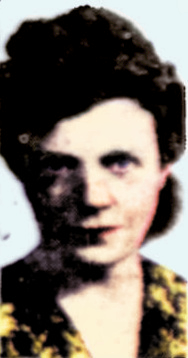The Pittsburgh Press (January 23, 1942)

I DARE SAY —
Men and stars
By Florence Fisher Parry
Under what stars were Herbert Hoover and Charles Lindbergh born that only the dregs of fame were theirs to know, while others tasted nectar?
I think that if you were to search the history books, you would find no more tragic miscarriage of fortune than in the histories of these two men. Both of them outlived their fame. Both, honest to the point of obsession, made enemies of the very ones they sought to persuade. In the face of unrelenting opposition, both held fast to unpopular conviction, brooking no compromise, accepting all punishment. Both, possessed of unlimited power, failed to exert that power, at least successfully. Both – each in his uncompromising way – were patriots, are patriots, of the first order. Mistaken patriots, heaven knows, unpopular patriots. But who would say that either of these Americans ever meant to play their country false?
I could trust these men on oath. I do not believe that either man is capable of telling a lie. There are few human beings of whom this could be said. Give them their due, they are honest men.
What, then, stepped in to deprive them of the honors they worked so assiduously to deserve?
I think you will find that in the case of both these Americans, their failure can be attributed to two things. An utter lack of a sense of TIMING, and an utter lack of what we might call the human touch.
They had no GIVE, that most human of attributes!
There is a time and place for all things. These men seemed utterly insensible to this. It is conceivable that Lindbergh’s “America First” ideology could have fitted into the American tempo of thought some years ago. But he TIMED it wrong. By the time he articulated it, it was no longer true.
Untimely book
Perhaps no book ever to be published was so badly timed as Herbert’s Hoover’s America’s First Crusade. Its appearance upon our book stalls today is glaring evidence of its author’s utter incapacity to approximate the American mood! Never mind if this book WAS begun seven years ago. Seven years ago, it would have made consistent reading. But just because it was true then by no means assumes that is is true now. Mr. Hoover’s inflexible mind works on the premise that truth does not change. Well, it does. It does. Nothing has been found to be more perishable!
So in the case of both of these ill-starred men, a lack of any sense of TIMING worked their ruin as important public figures. They simply didn’t synchronize with the speeding events of their day.
It was as though they drew a solitary circle around themselves and let no human being pass over. They were lonely men, I think unhappy men, who might have liked to be different but knew not how to be so. Such solitaries can never feel the mood and tempo of their fellow man. And insensible to it, they are sure to make appalling blunders.
The example of their failure affords us a happy contemplation, however. For it serves to remind us of others, not of their moral breed but of their lonely temperament of whom we can expect ultimate failure, also.
Hitler.
Mussolini.
The one, Hitler, has a sense of timing, of synchronization, amounting to genius. But it will fail him in the end, for he lacks the human touch.
The other, Mussolini, has neither a sense of timing nor the human touch. He times his entrance in the war badly. He did not approximate the temper of his people.
The Japanese warlords, too, display the same weakness. They have shown themselves to be past masters at timing; but they lack the human touch. Churchill thunders:
What kind of people do they think we are?
And sizes them up in a nutshell.
So we can assume that they will ultimately fail. Because, in order to succeed in this fevered era, one has to have a sense of TIMING, plus the human touch.
Men of destiny
Churchill has it. Roosevelt has it. Willkie has it. They will succeed where the Lindberghs and the Hoovers of this world, wherever they are, can never succeed. They have GIVE. They have that extrasensory awareness that tells them when TO and when NOT TO get response from THE PEOPLE. They know that they are powerless to act, however righteous and sure they may feel themselves to be, unless they touch a responsive chord in THE PEOPLE.
Had Lindbergh had this gift, had Hoover had it, they, too, would have made the stars look down.
I have included Wendell Willkie.
Yes, his work is still to do. Time moves fast and in a year is crowded, a decade’s history. There is much to do ahead; more than what has been done, is even now being done. It will require greatness in man wherever it can be found. The great men of this world can afford to wait and let their ordained task find them when the time comes.
What is a year or two or three or ten to a man like Wendell Willkie? He who said, just the other day:
I have made up my mind to dedicate the balance of my life to the preservation of free enterprise in America, regardless of whether or not I ever hold public office.